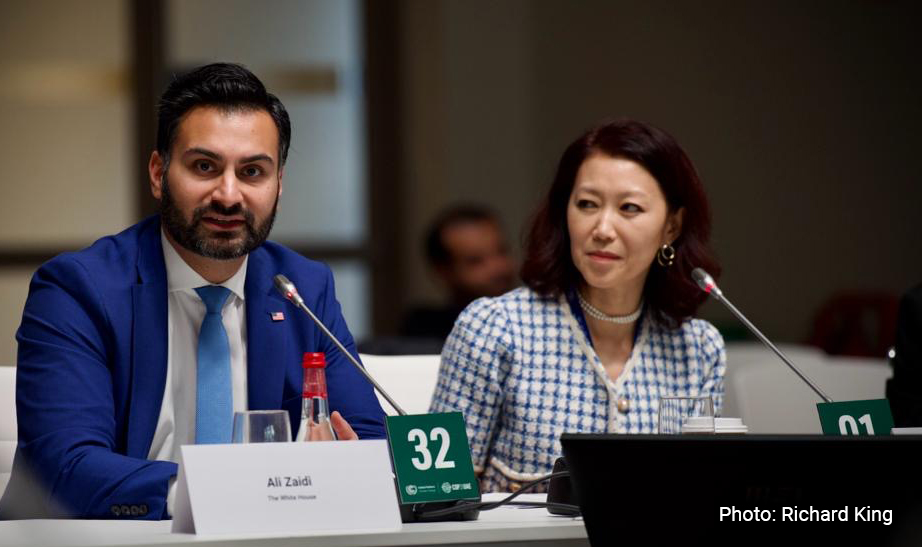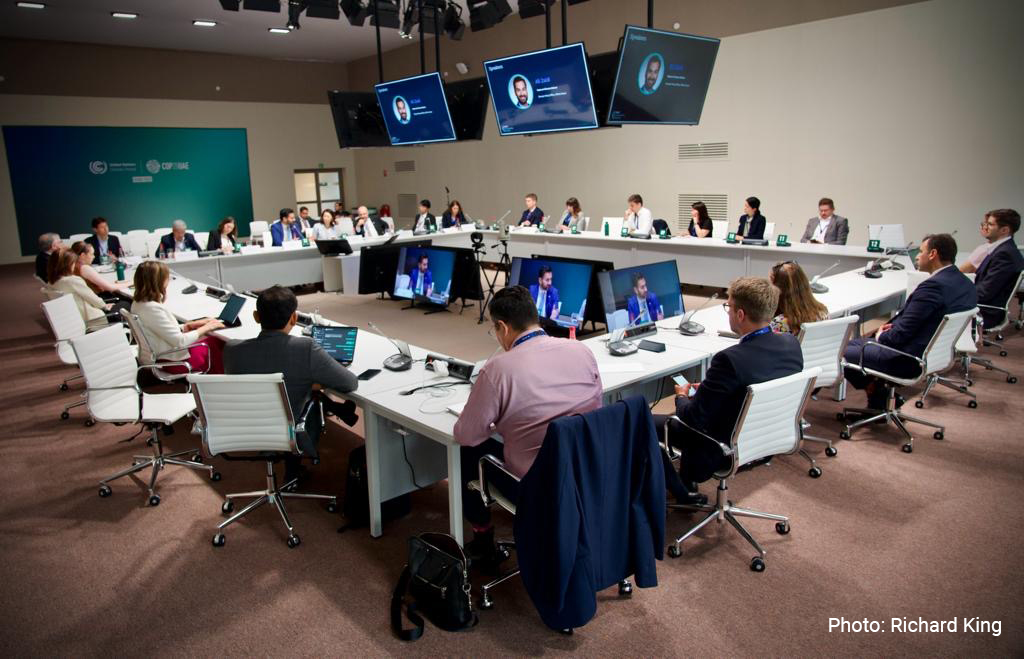How do we accelerate climate progress in the largest economies?
That was the question at a roundtable hosted by the MSCI Sustainability Institute at COP28 on Wednesday, where leaders from the UN Framework Convention on Climate Change, the White House, business and finance shared insights for clearing barriers that get in the way of climate action.
The recommendations reflected a reality that accompanies discussion at COP28: “While the world’s listed companies have, since the Paris Agreement, begun to move in the right direction, further abatement appears to be getting harder,” noted Linda-Eling Lee, the Institute’s founding director, citing data from the latest MSCI Net-Zero Tracker.
Watch the full recording
The inevitability of collaboration
- “To be able to effectively scale up and fast track climate action, collaboration between the public and private sectors is not only essential, but inevitable,” said James Grabert, Mitigation Division director at the United Nations Framework Convention for Climate Change, noting that only through collaboration across sectors can society accelerate action. “What is needed is an unpacking of the different building blocks of this collaboration, understanding the best practices and challenges, forming innovative partnerships, and iteratively tackling barriers.”
The value of well-tailored policy
- Ali Zaidi, the White House national climate advisor, emphasized the value of a policy mix that pairs “a strong investment program with a credible and rigorous” approach to setting standards, citing the Biden administration’s pairing the Inflation Reduction Act with regulation on tailpipe emissions and fuel economy to scale supply of electric-vehicle batteries. “We would like more jurisdictions to adopt an investment-plus-standards approach, and for the private sector to ask government to set standards and ‘tie us all to the mast’ so that it can take the actions it needs to with less risk,” he said.
- “When it comes to policy, some barriers to climate action are owned not by a climate-change department but by a planning department,” observed Emily Murrell, policy program director at the Institutional Investors Group on Climate Change, stressing the value of “looking across the whole picture.”
- Companies are seeking policy that helps them make the business case for climate investment, noted Maurice Berns, senior partner at Boston Consulting Group and chair of the Center for Energy Impact. “Business needs policymakers to get more granular,” he said. “The amount of planning and production required at every level of the chain needs to be coordinated and have a timing that syncs up.”

Ali Zaidi, National Climate Advisor at the White House, and Linda-Eling Lee, Founding Director and Head of the MSCI Sustainability Institute.
Business strategy
- Companies have capital but need revenue to service their investment, stressed Grant Dougans, partner and energy and natural resources lead at Bain & Company, adding that companies also need better access to sites and clarity from policymakers that can help them estimate the cost of projects. “If we get revenue, siting and technology right, we’ll put more shovel-ready climate projects onto executive tables for decision-making,” he said.
- Be open to breakthroughs but focus on the task at hand, urged Gilles Vermot Desroches, Schneider Electric’s director of corporate citizenship and institutional relations. “We will have new climate solutions in the future, but we need to implement the solutions we have now in an incremental way,” he suggested.
- Business goes beyond listed companies, Tessa Ferry, Race to Zero lead for the UN Climate Change High-Level Champions, noting that nearly 60% of companies in the Race to Zero campaign are small- and medium-sized enterprises. “We need all-of-society and all-of-economy approaches to the climate transition, and to think about the roles that everybody, including SMEs, cities, states and universities can play,” she stressed.
Data and finance
- “If the financial system is not rebooting around climate, it’s for lack of data,” said Hiromichi Mizuno, special advisor to MSCI’s CEO and former chief investment officer of the Government Pension Fund of Japan. “We need to put forward as much data as possible.”
- Carine de Boissezon, chief sustainability officer and head of impact at EDF Energy, asked that investors differentiate “between the good guys and the not-so-good guys,” citing an insufficient “greenium” that transition leaders like EDF can get on green bonds. “We need to make sure there is real differentiation, so there is more to invest in the future.”


